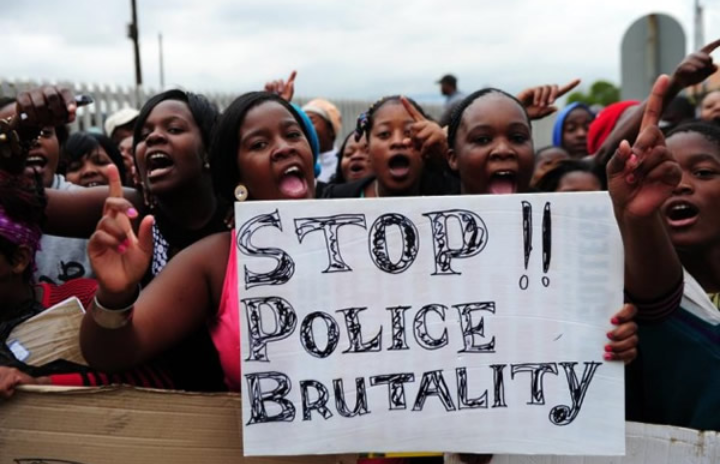
Legally, the police make arrests, but they are not the judiciary, the only authority with the power to impose punishment is the judiciary. Brutality is the real face of policing in Nigeria. The underlying motive of these officers is to extort money from the vulnerable youths, after falsely accusing them of being Internet fraudsters, or “Yahoo Yahoo boys” in local parlance. For this, they have been repeatedly caught in the act. At times, some youths have been murdered extra-judicially.
Countless ordinary Nigerians attempting to make precarious ends meet as taxi drivers, market traders, and shopkeepers are accosted daily by armed police officers who demand bribes and commit human rights abuses against them as a means of extorting money. Those who fail to pay are frequently threatened with arrest and physical harm. Far too often these threats are carried out. Meanwhile, victims of crime are obliged to pay the police from the moment they enter a police station to file a complaint until the day their case is brought before a court. In the shadows, high-level police officials embezzle staggering sums of public funds meant to cover basic police operations. Senior police officers also enforce a perverse system of “returns” in which rank-and-file officers are compelled to pay up the chain of command a share of the money they extort from the public. Those charged with police oversight, discipline, and reform have for years failed to take effective action, thereby reinforcing impunity for police officers of all ranks who regularly perpetrate crimes against the citizens they are mandated to protect.
The Nigeria Police Force, established in 1930, has a long history of engaging in unprofessional, corrupt, and criminal conduct. Over the years, this unwieldy force—Africa’s largest—has proved difficult to effectively manage and control and has become largely unaccountable to the citizens it is meant to serve. Many Nigerian police officers’ conduct themselves in an exemplary manner, working in difficult and often dangerous conditions—some 250 policemen and women were shot and killed in the line of duty in 2009—but for many Nigerians, the police force has utterly failed to fulfil its mandate of providing public security. Indeed, 80 years after its birth, members of the force are viewed more as predators than protectors, and the Nigeria Police Force has become a symbol in Nigeria of unfettered corruption, mismanagement, and abuse.
Extortion, embezzlement, and other corrupt practices by Nigeria’s police undermine the fundamental human rights of Nigerians in two significant ways. First, the most direct effect of police corruption on ordinary citizens stems from the countless human rights abuses committed by police officers in the process of extorting money. These abuses range from arbitrary arrest and unlawful detention to threats and acts of violence, including physical and sexual assault, torture, and even extrajudicial killings.
—
Rice, a staple for Christmas celebrations in Nigeria, has become a luxury this year. Soaring…
Panic erupted on Saturday at a concert in Lagos when the stage collapsed during Odumodublvck’s…
The Federal Government of Nigeria has allocated ₦6,364,181,224 billion for the refurbishment and rehabilitation of…
The black market dollar to naira exchange rate for today, 22nd December 2024, can be…
The Nigerian National Petroleum Company Limited (NNPCL) has refuted claims that the 60,000 barrels per…
Manchester City finds itself in unprecedented turmoil, with relegation-level form showing little sign of improvement.…